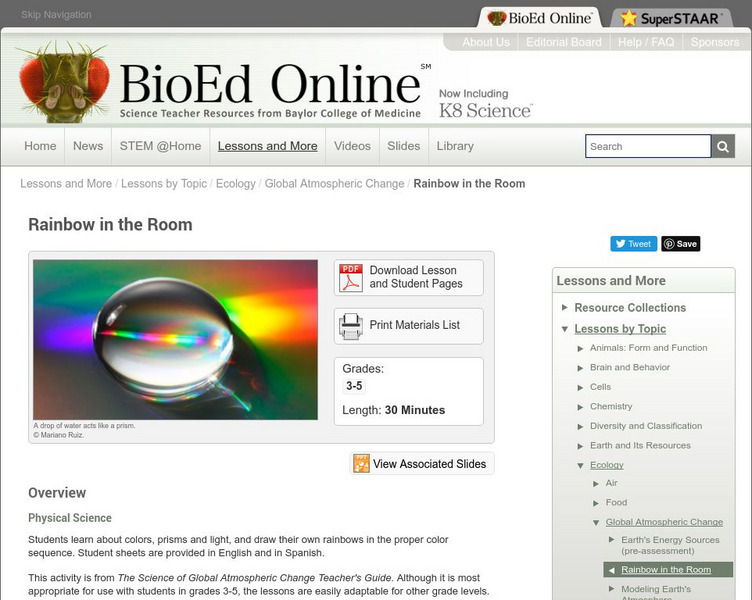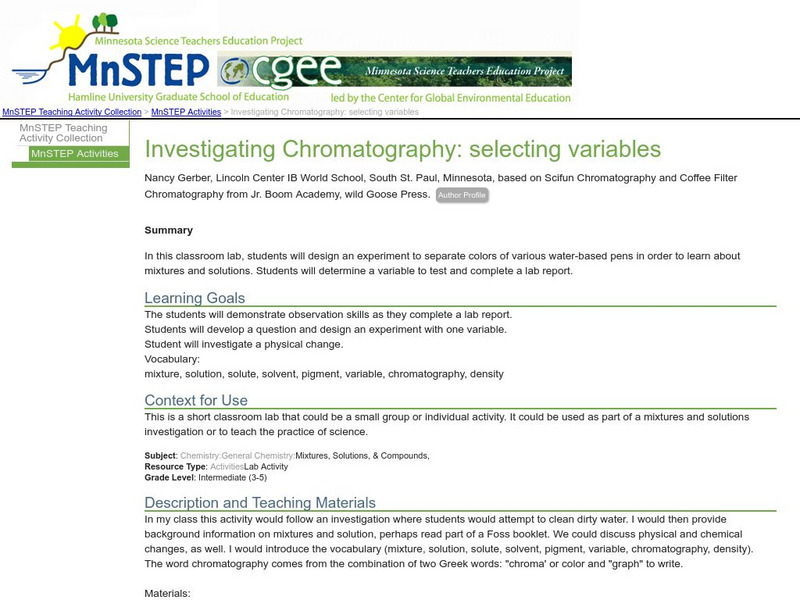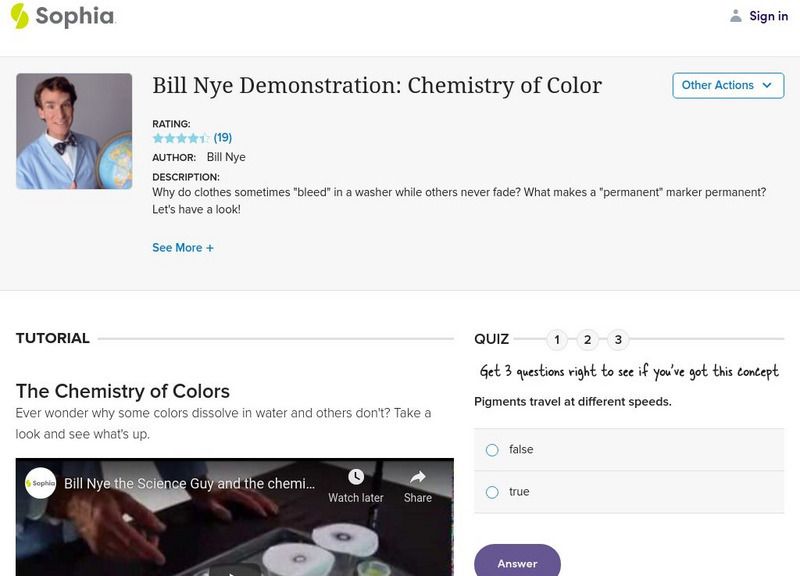Roy the Zebra
Roy the Zebra: Reading Games: High Frequency Words: Tom's Color Game
Help Tom the zebra get ready for bed in this interactive game. Drag each color word next to the box with the matching color and give Tom one item he needs for bedtime. After giving him socks, a blanket, hay, and a glass of water, watch...
BioEd Online
Bio Ed Online: Rainbow in the Room
Students investigate the properties of visible light and the sequence of colors in the spectrum using light shone through water and prisms. The lesson and accompanying slideshow can both be downloaded.
Children's Museum
The Children's Museum of Indianapolis: Color Changing Milk
Students observe a molecular dance of bursting colors through exploring states of matter and learning that materials can be characterize by how they respond to water.
Science Education Resource Center at Carleton College
Serc: Heat Transfer
Students explore how different colors absorb or reflect heat using a black can of water, a white can of water, and a plain can of water.
Physics Central
Physics Central: Physics in Your Glass: Racing Molecules
An easy experiment for demonstrating and exploring molecule movement requiring common household items: two glasses, two dark colors of food coloring, and warm and cold water. A few variations to the experiment will have students using...
Science Education Resource Center at Carleton College
Serc: Investigating Chromatography: Selecting Variables
In this lab, students will demonstrate observation skills as they design an experiment to separate colors of various water-based pens in order to learn about mixtures and solutions. Students will determine a variable to test and complete...
Science Education Resource Center at Carleton College
Serc: All That Glitters
This Ocean Explorer lesson plan (PDF) explores the questions: What colors, if any, are visible down in the deep sea? What is bioluminescence? Students will learn about white light (visible light), the quantity and quality of light as...
Center of Science and Industry
Cosi Columbus: Coffee Filter Rainbows
Science experiment that demonstrates chromotography. Includes full list of materials, procedures, and scientific explanation of what happens with different colors when they are soaked with water.
Exploratorium
Exploratorium: Science Snacks: Rotating Light
An experiment where polarized light is shone into a solution of sugared water, causing each of the colors in white light to change direction in varying amounts.
Sophia Learning
Sophia: Bill Nye Demonstration: Chemistry of Color
Ever wonder why some colors dissolve in water and others don't? Watch this video to learn why. [2:16]
PBS
Pbs Teachers: Paper Towel Chromatography Experiment
Observe the separation of colors derived from black marker ink by wicking water through a marker line on a paper towel.
Curated OER
Educational Technology Clearinghouse: Maps Etc: Physical Europe, 1916
A physical map of Europe from 1916 showing color-coded elevations and water depths for the area extending from Iceland to the Ural Mountains in Russia Proper, and the Arctic Circle to the Mediterranean Sea. Land elevation colors range...
Curated OER
Educational Technology Clearinghouse: Maps Etc: Physical Map of Europe, 1916
A physical map of Europe from 1916 showing color-coded elevations and water depths for the area extending from Iceland to the natural boundary between Europe and Asia (Ural Mountains to the Caspian Sea), and the Arctic Circle to the...
Curated OER
Science Kids: Science Images: Chromatography
This photo shows a completed chromatography chemistry experiment. The colors have clearly separated from each other along the piece of paper. The original black ink was separated using an ethanol and water mixture solvent.










